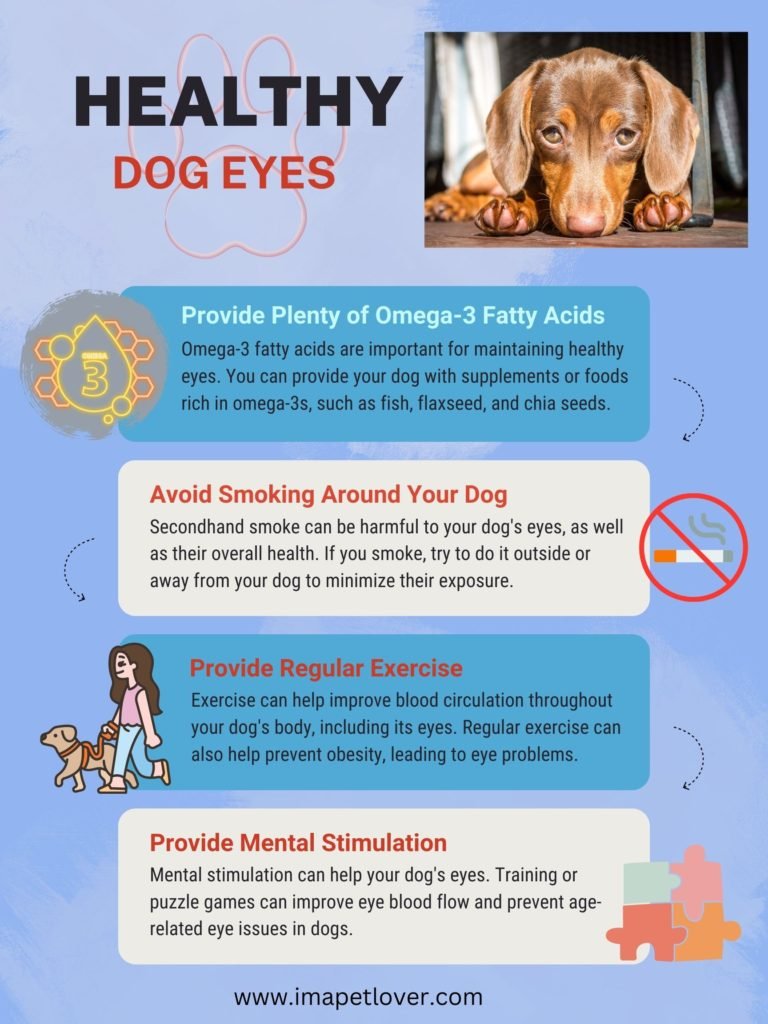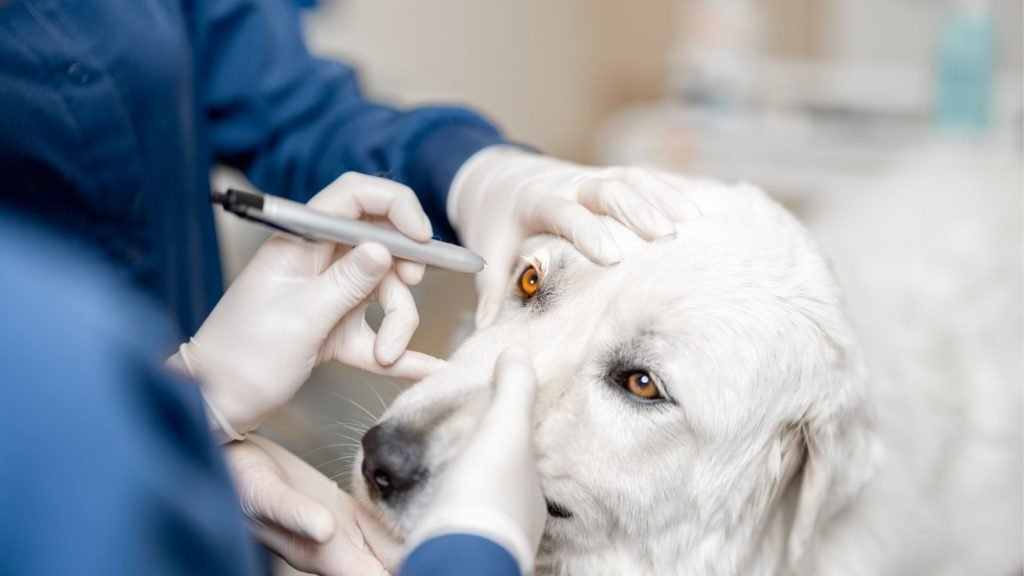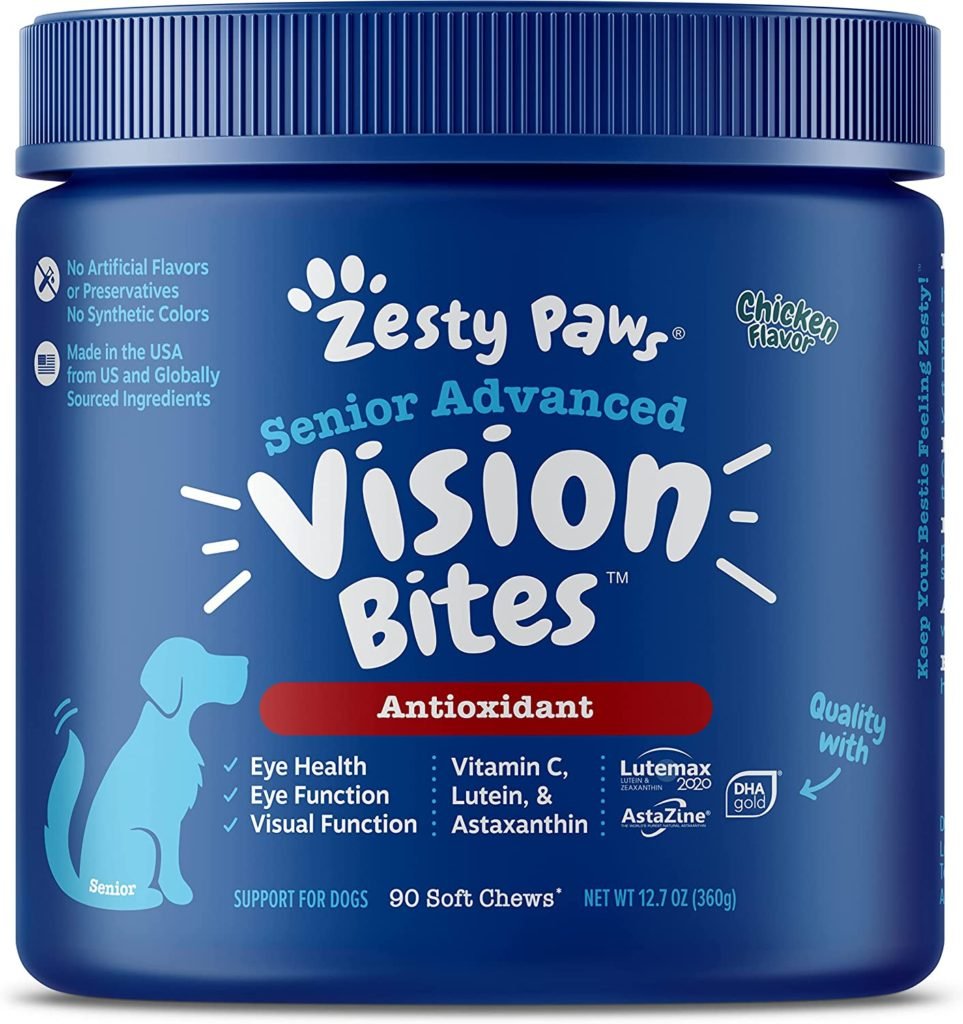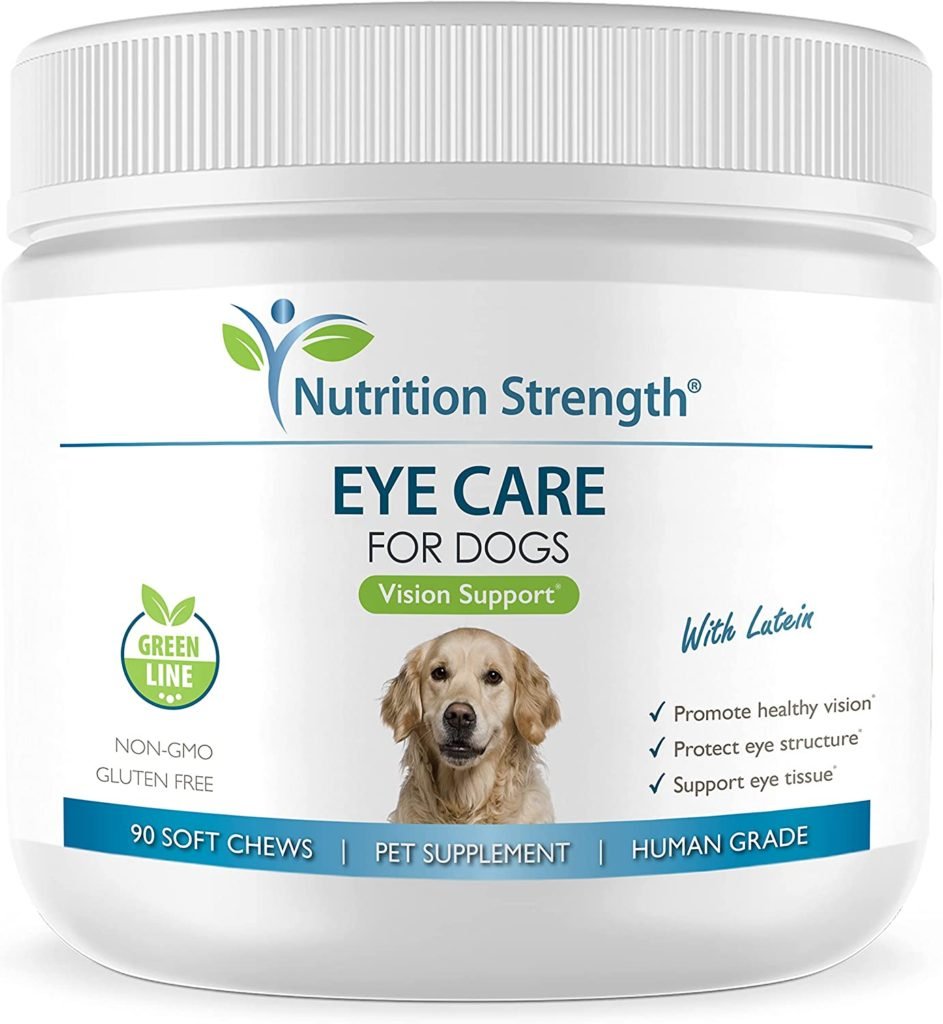Maintaining healthy dog eyes is crucial for their well-being and quality of life. As a pet owner, you must be proactive in maintaining your dog’s eyes and addressing any concerns. This post will explore common eye problems in dogs, their symptoms, and how to prevent and treat them.
Common eye problems in dogs
Conjunctivitis: The conjunctiva, the thin membrane inside the eyelid that covers the white area of the eye, is inflamed. Infections, allergies, or foreign objects in the eye can cause conjunctivitis. Symptoms may include redness, swelling, and discharge.
Cataracts: Cataracts are a cloudy or opaque area in the lens of the eye, which can cause vision problems. Cataracts are more common in older dogs and are caused by genetics, injury, or other health issues. Symptoms may include cloudiness in the eye, vision loss, and squinting.
Glaucoma is when the pressure inside the eye becomes too high, leading to optic nerve damage. It can be caused by genetics, inflammation, or injury. Symptoms may include redness, swelling, and vision loss.
Dry eye: Keratoconjunctivitis sicca, or dry eye, occurs when the eye does not produce enough tears to moisten it. Inflammation, medications, or other health issues can cause it. Symptoms may include dryness, redness, and discharge.
Corneal ulcers are sores on the eye’s transparent outer layer (the cornea). Trauma, infections, or other eye problems can cause them. Symptoms may include redness, swelling, and discharge.

You May Also Interest: Effective Treatments for Dog Ear Infections
Several uncommon eye problems can affect dogs, including:
Uveitis is an inflammation of the middle layer of the eye, known as the uvea. It can be caused by infection, injury, or autoimmune diseases.
Orbital cellulitis: It’s an inflammation of the tissue that makes up the eye socket. Any delay in treatment of this potentially sight-robbing condition, which may have its origins in infection or injury, might result in permanent blindness.
Retrobulbar abscess: This is an abscess or pus collecting behind the eye. The condition, which causes eye protrusion and sometimes blindness, is typically brought on by tooth abscesses that spread to the eye.
Eyelid tumors: Tumors on the eyelids of dogs can alter their look and make it difficult for them to open and close their eyes.
Ocular melanoma: This type of cancer hurts the cells in the eye that make pigment. In extreme circumstances, the affected eye may require removal.
Symptoms of eye problems in dogs
If you notice any of the following symptoms in your dog’s eyes, it’s essential to consult with a veterinarian as soon as possible:
- Redness or swelling
- Discharge or tearing
- Squinting or rubbing the eyes
- Change in eye appearance or vision
Healthy puppy eyes
There are differences in the appearance and function of healthy eyes in puppies and adult dogs. Puppies have larger eyes relative to their head size, which may also appear more prominent due to a lack of fur around the eye area.
Puppies’ eyes are also more prone to irritation and infection due to the underdeveloped immune system and the fact that they are still exploring their environment. On the other hand, adult dogs generally have more mature immune systems and are less likely to experience eye problems.
However, as dog’s age, they may be more prone to developing age-related eye conditions such as cataracts or glaucoma. It is vital for owners to monitor their dog’s eye health at all stages of life and consult with a veterinarian if they notice any changes or issues.
You May Also Interest: Don’t Let Fleas Ruin Your Dog’s Health: Here’s How to Prevent and Treat Them
Prevention and treatment of eye problems in dogs
Here are some ways to prevent and treat eye problems in dogs:
- Regular eye exams with the veterinarian: It’s essential to check your dog’s eyes regularly, especially if they are prone to eye problems or are experiencing any symptoms. Your veterinarian can diagnose and treat any issues that may arise.
- Protecting the eyes from injury or irritation: It is critical to protect your dog’s eyes from damage or irritation to avoid eye diseases. That might include wearing eye protection when engaging in activities that could result in harm, such as playing with a ball or sprinting through the brush. You should also be aware of your dog’s surroundings and avoid exposing them to things that may irritate their eyes.
- Administering medications or eye drops as prescribed by the veterinarian: If your dog is given eye drops or other medications, you must follow the veterinarian’s instructions and provide them as indicated. That will aid in the successful treatment of any eye disorders and the prevention of future difficulties.
- Providing a healthy diet and lifestyle for overall eye health: A balanced food and way of living can help your dog’s eyes stay healthy. That may entail giving your dog a balanced meal with all the crucial nutrients and ensuring that he receives enough activity and keeps hydrated.
You May Also Interest: Uncover your dog breed based on your zodiac sign
Healthy dog eyes supplements
Supplements of different types can be provided to dogs to support and maintain healthy eyes. These supplements may contain antioxidants, omega-3 fatty acids, and vitamins, which can promote general eye health and function. Lutein, zeaxanthin, and bilberry are frequent substances in dog eye health supplements. Before beginning any supplement regimen for your dog, please consult a veterinarian to confirm that it is safe and appropriate for your specific pet’s requirements.
Healthy dog eyes requires ensuring its eyes remain in good condition. As a responsible dog owner, knowing the frequent eye conditions affecting your dog and how these issues can be prevented and treated is vital. You can ensure that your four-legged pal will continue to have a happy and healthy life for many years by keeping an eye on their eye health and offering any required care.





